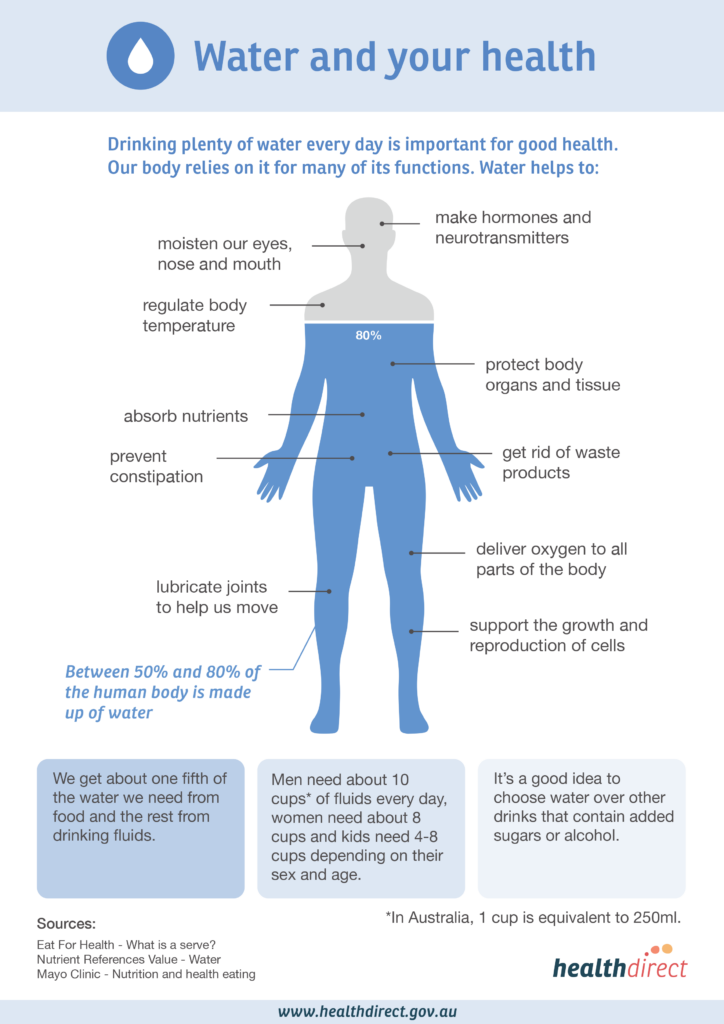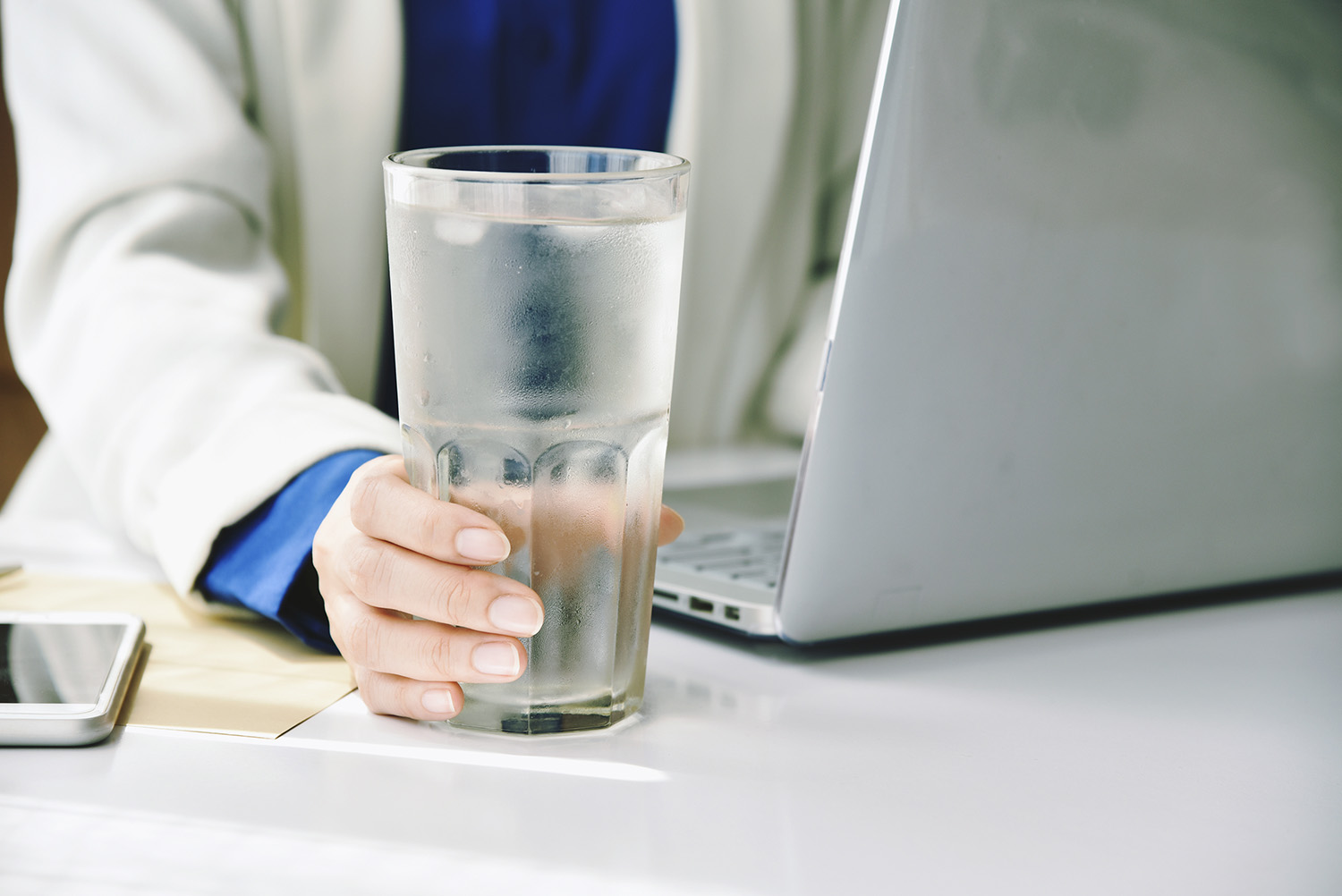Establishing and maintaining healthy habits can take a lot of time, effort, and commitment. But as we know, the benefits that we get from maintaining healthy habits far outweigh the costs. A good sleep schedule, healthy diet, and regular exercise can go a long way when it comes to caring for our physical and mental health. hydrate
The same is true when it comes to staying hydrated. Some of the traditional pieces of advice like carrying a water bottle or keeping a hydration diary just aren’t viable when you’re working in a high-functioning job.
Why do we need to stay hydrated?
Many of us have heard of the notion that 50-80% of the human body is water. So, it comes as no surprise that all of the body’s chemical processes take place in water. This fact alone can be enough to justify the need to stay hydrated. Some of the most well-known health information sources such as Harvard Health Publishing and The Centre for Disease Control and Prevention (CDC) discuss the benefits of staying hydrated. Below is a shortened list of the different reasons that we should stay hydrated based on their discussion.
Habits that keep us hydrated can promote:
- Blood health
- Joint health
- Muscular performance
- Brain function and mood
- Digestion and excretory system
- Skin health
Health Direct Australia has also put together a helpful graphic, outlining the relationship between water and our health.

Retrieved from https://www.healthdirect.gov.au/drinking-water-and-your-health
What Happens If We Don’t Stay Hydrated?
Most of us are familiar with and prone to what is known as acute dehydration. This is when we go several hours without drinking water, causing our fluid levels to drop below the healthy level.
Chronic dehydration, however, can set in when we are dehydrated for days at a time. This can be caused by circumstances like working in hot conditions, or being so busy or stressed that we neglect the habits that keep us hydrated. Chronic dehydration can cause health complications like kidney stones, ongoing muscle weakness, dizziness, headaches, dry/flaky skin, and constipation.
Hydration is About Healthy Habits
So, we know that staying hydrated in important, but how do we keep our fluids up when we are busy and working? It can be difficult to make sure you are hitting the mark in terms of water consumption: Sometimes we can be so busy that it’s hard to even keep track of how much water we are drinking.
Our doctors at Ford Health suggest an integrated approach with habits that happen as part of our day can be far more effective and reasonable. An integrated approach minimises disruption to your day and means that hydration happens almost automatically on a regular basis.
Drinking water regularly as part of our day can be difficult to include and easy to forget. Here are some habits you can start to integrate into you daily life to stay healthy and hydrated.
- Wake up with water
- Having a glass of water when you wake up can help with the process of waking up as well as restore fluids that may have dropped while you were sleeping.
- Have water before drinking a coffee
- Coffee can dehydrate the body. So having water before a coffee can regulate this removal of fluids as well as help balance out your cortisol levels.
- Eat fruit and vegetables for snacks
- About 20% of our fluid intake comes from the food we eat. Get your fluids from a healthy source that is high in water such as fruit or vegetables. These natural sources of fluids contain natural sugars that can promote and improve fluid absorption.
- You can even add fruit like lemon, mint, cucumber, or strawberries to your water to give it a little bit of extra flavour.
- Avoid consumption of unhealthy or unnecessary fluids like soft drink and alcohol
- Similar to coffee, drinks with high sodium or alcohol can dehydrate the body. Opting for water or natural fruit juice can deliver fluids to your body far more effectively.
- The CDC provides a fantastic resource to help you stay informed and “Rethink your drink”.
- Set a regular timer or reminder to help you remember to drink water regularly
- While you don’t necessarily have to drink water at an exact interval time, a timer can help by acting as a reminder to drink water when you have the next chance
- Sip water when it is convenient and nearby.
- Taking small opportunities to have a single glass or mouthful of water, whether it’s in a meeting room or at the drink station, can help maintain fluid levels. The body can absorb water far more effectively when it is consumed in small amounts rather than large, infrequent doses.
If you think you or your business could benefit from guidance around healthy habits, get in contact with us today!
To hear more about health and wellbeing in the workplace, follow us on LinkedIn!







